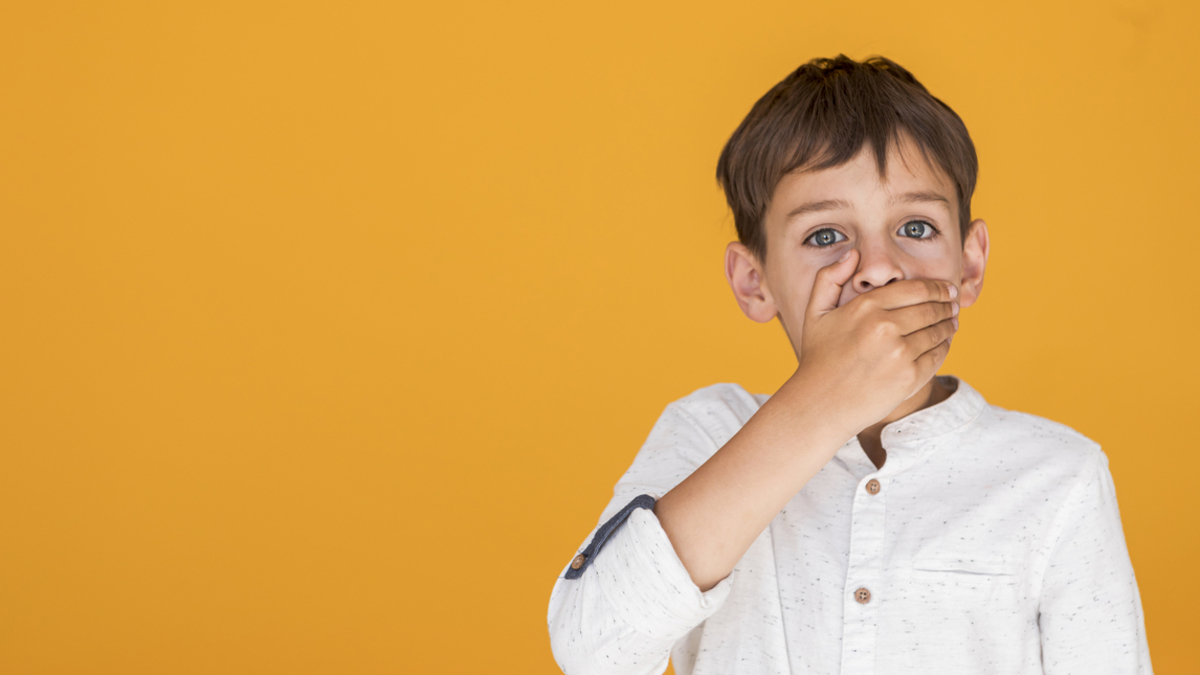Oral herpes — also called cold sores and fever blisters — are a very common viral infection that most children are exposed to in the first five years of their life. They are caused by Herpes Simplex Virus, more specifically the Herpes Simples Virus 1.

Causes of cold sores in children
Oral herpes is highly contagious, and children usually contract it at school or daycare due to salivary contamination. This can occur from kissing another child, touching an object which has the active virus on it, or through the areal spread of the infection by coughing and sneezing. Skin-to-skin contact may also lead to the spread of the virus. Sharing utensils, towels, and other personal care items with an infected person can all lead to cold sores.
The good news is that oral herpes is usually not dangerous and is self-limiting in nature and the cold sores heal in one to two weeks. Genital herpes, the more serious condition, is caused by the Herpes Simplex Virus 2. Oral herpes usually causes cold sores in and around the mouth and genital herpes generally causes blisters in the genital area but this can vary as well.
Symptoms of oral herpes
- The cold sores may be painful and may cause a dip in your child’s appetite. They will first appear like a fluid-filled blister which will burst and ooze fluid, and then form a crusty scab and heal over the next two weeks.
- The first infection may have cold sores in and around the mouth and may be accompanied by fever, irritability, swollen lymph glands and flu-like symptoms.
- The child may feel a tingly itchy sensation and redness at the same location where the cold sore is about to appear up to two days before the blister becomes visible.
Progress of oral herpes
The first time a child is exposed to the Herpes Simplex Virus, the infection is the most severe. The cold sores may not appear for up to 20 days after contracting the virus, however, the child may pass on the virus to others two days prior to the cold sores appearing.
The first infection may cause cold sores inside the mouth as well as on the lips and may be accompanied by fever and other flu-like symptoms. The fluid-filled blisters will slowly start oozing fluid, a crusty scab will form over it, and it will finally heal in up to two weeks time.
Common triggers that may reactivate oral herpes
- Fever or any period of low immunity such as a cold or flu.
- Weather changes like excessive sunlight exposure or extreme cold or intense dryness.
- Stress and tiredness.
- Menstrual periods.
- Any trauma or injury.
Possible complications of oral herpes
- The Herpes Simplex Virus can affect the cornea of the eye, leading to HSV keratitis. This generally heals without causing any damage to the eye but in severe cases, can cause scarring of the cornea and even blindness.
- In some cases, the Herpes Simplex Virus can lead to encephalitis or meningitis which are serious infections of the brain. These need to be treated immediately as they can cause long term damage.
- In case a baby below six months of age gets exposed to Herpes Simplex Virus, the resulting infection is severe due to the baby’s low immunity.
How are cold sores in children treated?
As the infection is self-limiting and the blisters heal in one to two weeks, the treatment is usually symptomatic or to just expedite the healing:
- Cold compresses to reduce inflammation
- Mouth gels for painful blisters, along with acetaminophen for fever and Ibuprofen for pain if required. Aspirin must never be given to a child.
- Soft, cold and non-spicy food for the child with more fluids.
- Apply sunscreen and lip balm with sunscreen, and use an umbrella or hat for protection from the sun.
- Make sure your child doesn’t share utensils, towels, and toys with anyone. These need to be washed with hot water after use. You as the primary caregiver need to wash your hands regularly so that you don’t spread the infection to anyone.
A doctor must be consulted in case:
- The cold sores recur too often.
- The child is less than a year old.
- The immunity of the child is low.
- Any cold sores close to the eye
- If the blisters don’t heal in two weeks time.
- The cold sores are accompanied by confusion, seizures or severe headache.
How can cold sores be prevented?
Herpes is a very common and highly contagious infection, making it tough to prevent. Here are some common-sense steps, however:
- Don’t send your child to school or daycare in case of any symptom of illness.
- Teach the child to cover their face while sneezing or coughing using the elbow rather than hand to prevent contamination of objects in the environment.
- All toys, play mats, or gym mats must be washed regularly
- Teach the child to wash their hands regularly and not to share utensils.


Your thoughts on this